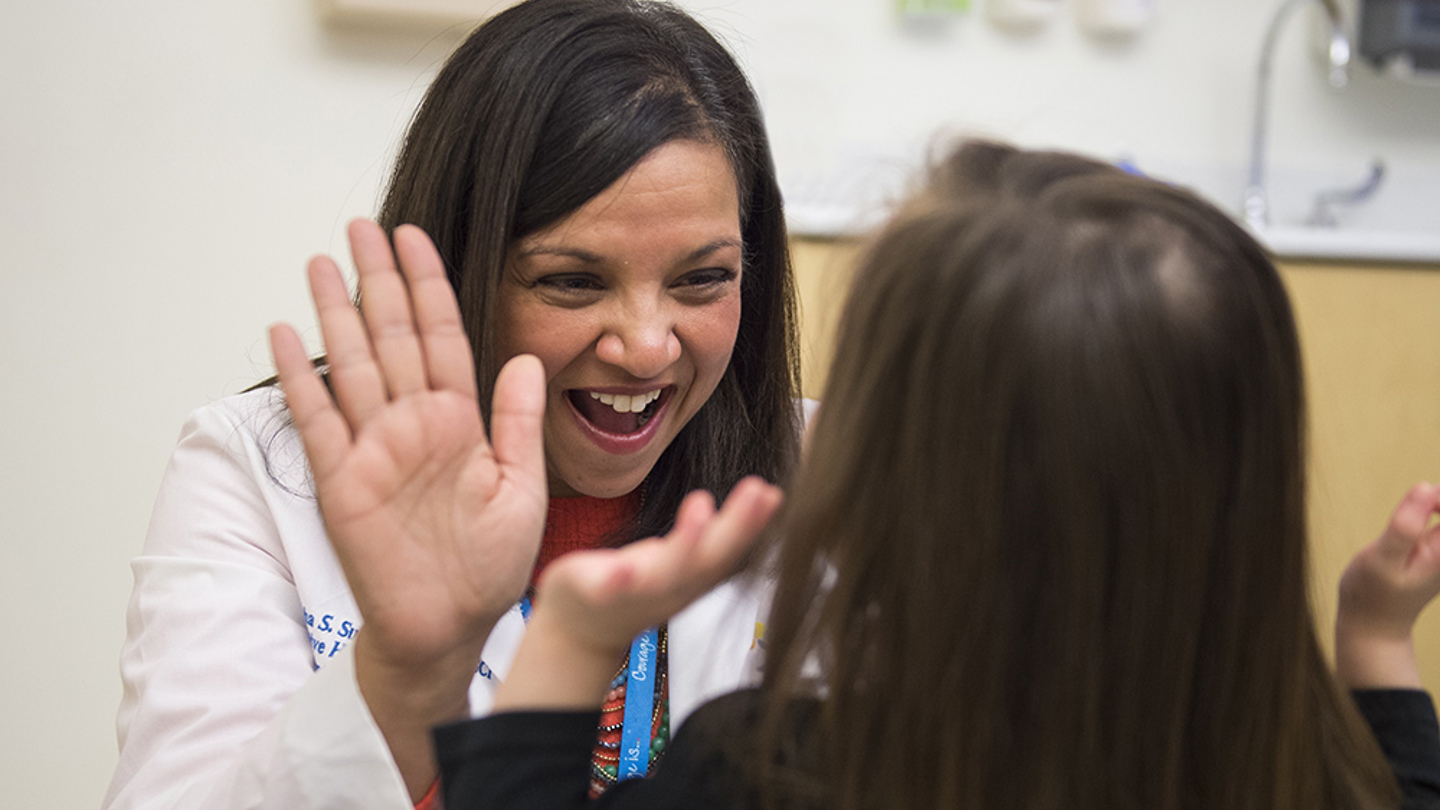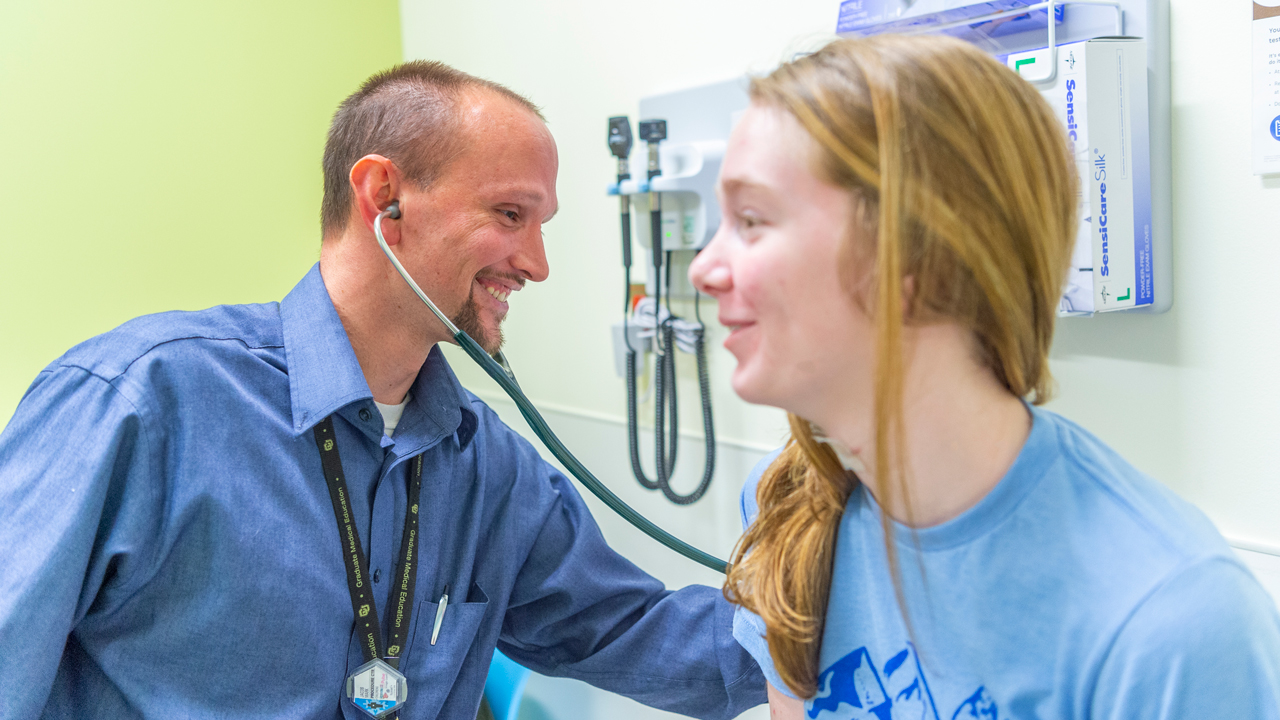- Doctors & Departments
-
Conditions & Advice
- Overview
- Conditions and Symptoms
- Symptom Checker
- Parent Resources
- The Connection Journey
- Calm A Crying Baby
- Sports Articles
- Dosage Tables
- Baby Guide
-
Your Visit
- Overview
- Prepare for Your Visit
- Your Overnight Stay
- Send a Cheer Card
- Family and Patient Resources
- Patient Cost Estimate
- Insurance and Financial Resources
- Online Bill Pay
- Medical Records
- Policies and Procedures
- We Ask Because We Care
Click to find the locations nearest youFind locations by region
See all locations -
Community
- Overview
- Addressing the Youth Mental Health Crisis
- Calendar of Events
- Child Health Advocacy
- Community Health
- Community Partners
- Corporate Relations
- Global Health
- Patient Advocacy
- Patient Stories
- Pediatric Affiliations
- Support Children’s Colorado
- Specialty Outreach Clinics
Your Support Matters
Upcoming Events
Child Life 101
Wednesday, June 12, 2024Join us to learn about the work of a child life specialist, including...
-
Research & Innovation
- Overview
- Pediatric Clinical Trials
- Q: Pediatric Health Advances
- Discoveries and Milestones
- Training and Internships
- Academic Affiliation
- Investigator Resources
- Funding Opportunities
- Center For Innovation
- Support Our Research
- Research Areas

It starts with a Q:
For the latest cutting-edge research, innovative collaborations and remarkable discoveries in child health, read stories from across all our areas of study in Q: Advances and Answers in Pediatric Health.

The Pediatric Pancreas Center at Children’s Hospital Colorado is recognized as an approved National Pancreas Foundation Center of Excellence. This designation was determined after a rigorous audit review of how our institution prioritizes multidisciplinary treatment of pancreatitis and treating the “whole patient” with a focus on the best possible outcomes and improved quality of life.
Our multidisciplinary team of gastroenterologists, endocrinologists, anesthesiologists, radiologists, pulmonologists, surgeons, nurses, nutritionists and psychologists use the most advanced technology and family-based care to diagnose and treat pancreatic disorders in children of all ages.
What is pancreatic disease?
Pancreatic disease occurs when the pancreas, an organ near the stomach that helps the body digest food and regulate blood sugar, does not work properly, becomes inflamed or injured or develops growths.

While a healthy pancreas produces enzymes to aid in digestion of food and hormones (such as insulin) to control blood sugar and maintain energy, an inflamed pancreas (called pancreatitis) can cause severe abdominal pain and other health problems. Children with acute pancreatitis typically look and feel quite ill and require medical attention. Some may require hospitalization.
While most children recover completely after a bout of pancreatitis, some may have recurrent (repeated) attacks or develop scarring and long-term problems in their pancreas, called chronic pancreatitis. Attacks of pancreatitis or chronic pancreatitis can lead to other health problems, such as chronic pain, malnutrition and diabetes.
Pancreatic conditions in kids
Our program treats children with all forms of pancreatic disorders, including:
- Acute, recurrent and chronic pancreatitis
- Pancreatic exocrine insufficiency
- Complications of pancreatitis, including fluid collections (pseudocysts), pancreatic ductal stones, pancreatic duct strictures, chronic pain and type 3c diabetes
- Pancreatic developmental abnormalities, such as pancreas divisum (malformation of pancreatic ducts)
- Pancreatic lesions, cysts, or masses
- Pancreatic trauma
Our Pediatric Pancreas Center services
We believe that each child with pancreatic disease and their family deserve a personalized approach. That’s why we provide a comprehensive range of services to help diagnose and treat pancreatic disorders in kids, including:
Diagnostic testing
To properly diagnose and treat pancreatic disease in kids, our team performs:
- Blood work
- Genetic testing
- Sweat testing
- Stool tests
Imaging
We use a combination of advanced imaging techniques, including:
- Magnetic resonance imaging (MRI and magnetic resonance cholangiopancreatography)
- Computed tomography (CT) scans
- X-rays
- Endoscopic ultrasound to diagnose conditions or identify complications associated with pancreatic disease.
Treatment
In addition to medical and nutritional therapies, we use advanced endoscopic techniques to drain pancreatic pseudocysts, remove pancreatic and biliary ductal stones and dilate ductal strictures.
Pancreatic disease treatments for children
We offer a number of innovative treatments for children with pancreatic disease, including:
Endoscopic retrograde cholangiopancreatography (ERCP)
At Children’s Colorado, we use state-of-the-art, child-sized equipment to treat pancreatic conditions in kids. Using endoscopic retrograde cholangiopancreatography (ERCP), we can examine pancreatic and bile ducts using a long, small, flexible camera called a duodenoscope. This requires a short, sedated procedure (45 to 90 minutes) where doctors determine if there are any stones, narrowing or blockages in the pancreas or bile ducts. Based on the results, our endoscopists can then perform a number of procedures to help improve pancreatic secretions or flow. ERCP is the least invasive, most effective way to treat conditions that block the flow of the pancreatic duct.
Endoscopic ultrasound (EUS)
The endoscopic ultrasound (EUS) is another type of specialized camera, which has ultrasound probes attached to the end. This long, small, flexible endoscope allows us to obtain high definition ultrasound images of the pancreas, the pancreatic duct, the bile duct and other structures in the upper abdomen through the endoscope. It also allows doctors to drain fluid collections in or around the pancreas and take small tissue samples (called biopsies) of masses in or around the pancreas. This procedure takes 45 to 90 minutes and is performed with the child under anesthesia.
Children’s Colorado is one of the few hospitals in the country that have dedicated pediatric experts using both ERCP and EUS.
Individualized pancreatic medication and nutrition regimens
Many patients with pancreatic disorders require medications, pain control and supportive nutrition to reduce symptoms or complications of their condition. Working with the patient’s family and primary care provider, our multidisciplinary team works together to create an individualized medication and nutrition regimen and plan for follow-up for each patient. Thanks to this collaborative approach, our specialists ensure the best treatment for improving quality of life and reducing hospitalizations.
Pancreatic surgery
In some cases, we may recommend surgery to remove masses or parts of the pancreas. Our team of pancreatic specialists includes expert pediatric surgeons who can ensure the best outcomes for even the youngest patients.
Why choose the Pediatric Pancreatic Center at Children’s Colorado?
At the Pediatric Pancreatic Center at Children’s Colorado, we understand that the best treatment for pancreatic disorders requires multiple different specialists to ensure optimal care and the best outcomes for the whole child. This is why we bring together our team of pediatric specialists from multiple departments, including:
- Gastroenterology
- Anesthesiology
- Endocrinology
- Radiology
- Surgery
- Psychology
- Nutrition
- Pulmonology
- Nursing
Our providers are pediatric specialists who have spent years training to care for kids with complex medical conditions who are passionate and committed to improve the health of children and their families.
Learn how we provide convenient care through the Multidisciplinary Clinic.
Pediatric pancreatic research and innovation
As an academic research institution, Children’s Colorado is on the front lines of improving child health. Our Pediatric Pancreas Center conducts research studies and uses innovative techniques and technologies to improve the future for all kids and teens facing pancreatic disorders. This means that our patients have access to pancreatic treatments that may not be available elsewhere.
See all GI researchContact the Pediatric Pancreas Center
To contact the Pediatric Pancreas Center, please call 720-777-1118.
Additional pancreatic disease resources
We recommend the following organizations for further information on pancreatic diseases:

Compassionate care, wherever you are
We’re here when you need us. Telehealth appointments are available across every specialty, so you can get the high-quality care we’ve always offered from the comfort, privacy and convenience of home.
See if telehealth is right for you



 We pioneer and deliver some of the most groundbreaking treatments available for digestive disorders in children of all ages.
We pioneer and deliver some of the most groundbreaking treatments available for digestive disorders in children of all ages.